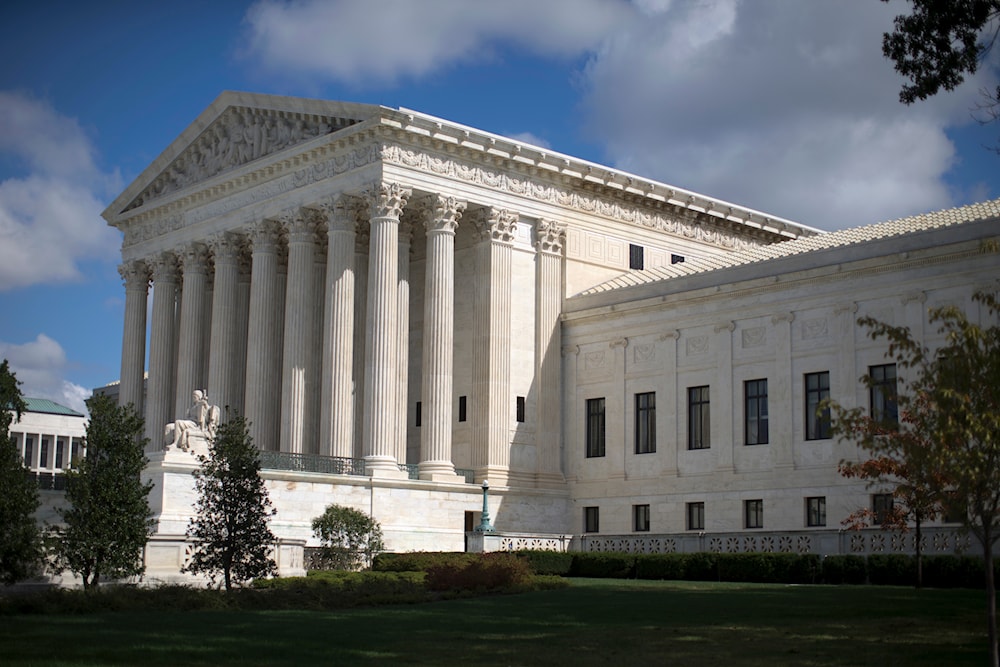Supreme Court extends block on Texas immigration law
The Supreme Court maintained its block on a Texas law that would grant police extensive authority to arrest migrants suspected of unlawfully entering the United States.
-

The Supreme Court is seen here in Washington on October 5, 2015. (AP)
The US Supreme Court has extended its temporary block on Senate Bill 4 (SB 4), allowing Texas police to arrest people suspected of crossing the border illegally.
At 4:05 pm CT on Monday, March 18, just five minutes after SB 4 was scheduled to take effect, Supreme Court Justice Samuel Alito issued an order extending the temporary halt, on the law.
Dr. Eddy Carder, a constitutional law professor at Prairie View A&M University said "The decision from Justice Alito, at this point, means that things will remain as they have been over the past weeks," adding that "the law is not going to be applied. It’s not going to be enforceable."
SB 4 grants Texas police the authority to arrest individuals whom they suspect of crossing the border illegally, and migrants could face misdemeanor charges and potential jail time, or they could choose to return to a designated port of entry.
"We applaud this continuation of the stay because we believe this is an unconstitutional bill. And we hope that that will be proven as it moves through the court process," said Rebecca Lightsey, co-executive director of American Gateways.
Texas Gov. Greg Abbott said in a statement Monday evening, "The Supreme Court has temporarily halted enforcement of SB 4, but it didn’t halt Texas’ pre-existing authority to arrest for criminal trespass and other violations of the law. Until President Biden steps up and does his job to secure the border, Texas will continue utilizing every tool and strategy to respond to this Biden-made border crisis. This case remains on schedule to be argued at the 5th Circuit on April 3rd."
Read next: Migrant crisis pushing Texans to consider 'Texit': Newsweek
Police profiling?
This legal dispute originates from a lawsuit filed in December by the ACLU of Texas and other parties, contending that SB 4 is unconstitutional.
"Immigration is a purview of the federal government and not the state government," said Lightsey. That said, supporters of the Republican-led law argue that the Constitution explicitly permits states to safeguard their borders in instances where the federal government falls short.
Lightsey argues further that "The way the bill is so broad, it would allow the police to look at someone and determine whether they're going to pull them over or not."
Abbott rejected that notion as he signed the law in December, stating, "They are not profiling. They are observing someone violating the law." On that note, SB 4 will remain on hold, pending a further order from the high court.
It is worth noting that the US Supreme Court temporarily halted SB 4 earlier this month. The law has been entangled in legal battles between the Biden administration and the Republican-controlled Texas government. Notably, immigration issues, including law enforcement, fall under the jurisdiction of the federal government in the United States, rather than individual states.
The Texas law aimed to categorize illegal border crossing as a state offense, a designation deemed unconstitutional by the federal Department of Justice. Amid a tense presidential election year, Republicans attribute the recent surge in migrant numbers to Biden.

 3 Min Read
3 Min Read








